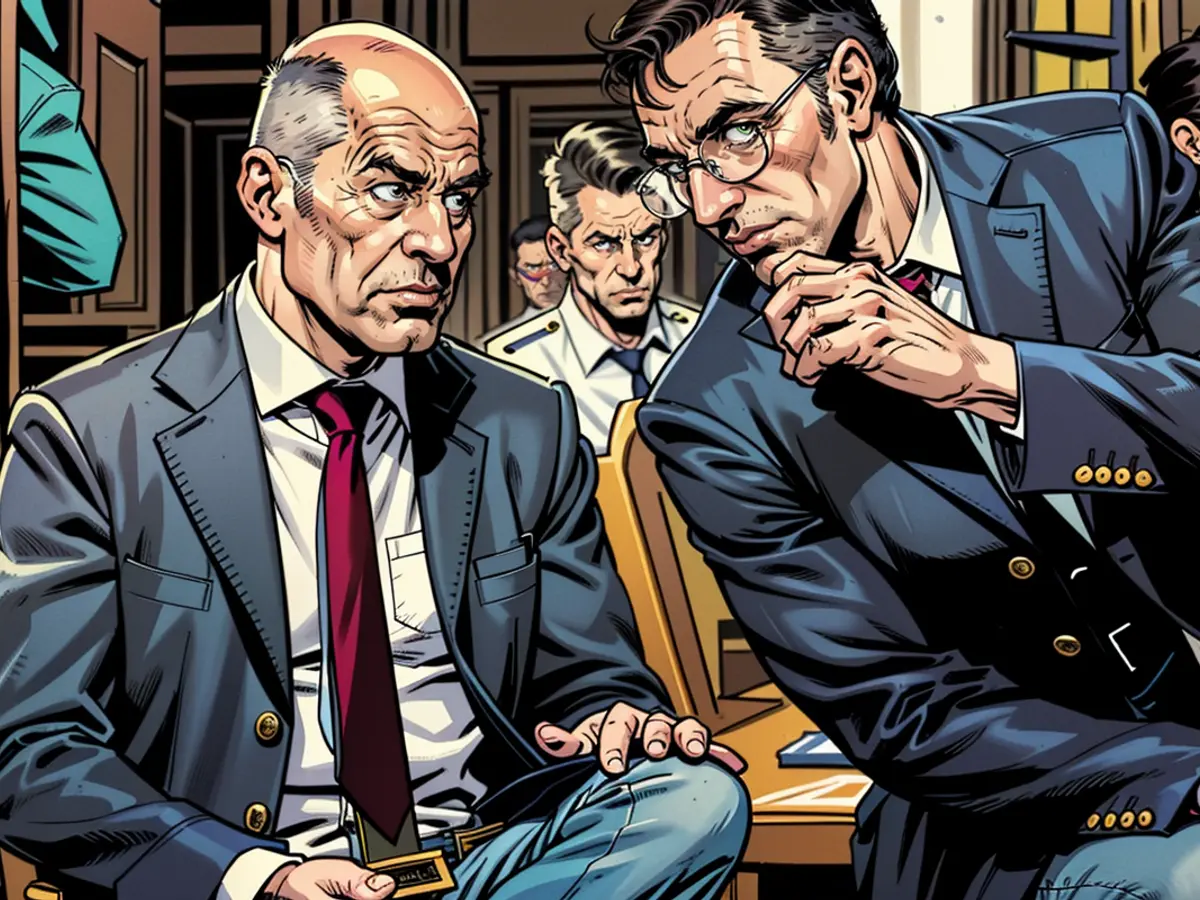Raw materials - EU and Serbia forge Lithium-Deal for Electric Cars
The European Union and Serbia aim to unlock one of Europe's largest Lithium deposits worth several billions of Euros together for the production of batteries, primarily for electric cars, in the Jadar Valley of Serbia.
In the presence of German Chancellor Olaf Scholz, Serbia's President Aleksandar Vucic, and EU Commission Vice-President Maroš Sefčovic, an intention statement was signed in Belgrade to facilitate the environmentally-friendly exploitation of the globally sought-after light metal in western Serbia. However, there is significant opposition from environmentalists in Serbia to the project.
Scholz assured that it would meet "the highest environmental standards." Sefčovic described the agreement as a historic step for Serbia towards the EU. Vucic was the most enthusiastic, stating after the signing ceremony, "This will be a turning point and a quantum leap into the future for us, something we could not have imagined."
Largest Foreign Direct Investment in Serbian History
Both sides are invested in the mineral deal. For Serbia, it represents the largest foreign direct investment in its history. The Serbian government aims to establish a value chain for electromobility from the extraction of the raw material to battery manufacturing. This means revenues, jobs, and investments, which Vucic estimated at €6 billion. Scholz also assured Vucic that a battery factory would be built in Serbia.
China Took a Backseat
Germany and the EU aim to reduce their dependence on China with the project. China controls a significant portion of the global lithium mining and processing. Scholz stated that it was impossible to understand the dependency as a problem and at the same time shy away from their own mining projects. "We need to get a grip on this," he said.
China had also shown interest in exploiting the deposits in Serbia; in May, President Xi Jinping even visited Belgrade. The fact that Europe has managed to secure the project despite Chinese interest is being celebrated as a significant achievement that could potentially influence other resource projects.
Lithium for Over a Million Electric Cars per Year
The agreement has a longer history. Already three years ago, the Australian mining giant Rio Tinto announced plans for a billion-dollar investment. According to Rio Tinto's estimates, the planned mine could produce 58,000 tonnes of lithium per year, which would meet the demand of approximately 1.1 million electric vehicles, which is about 17% of European production. Mercedes-Benz and Stellantis are reportedly in talks with Rio Tinto regarding a stake. These two and other companies also signed intention statements on Friday.
Environmentalists Worry About Water Supply
However, the project is highly controversial. Environmentalists criticize the potential contamination of groundwater with heavy metals, which they argue poses a threat to the drinking water supply of local residents. A representative of the environmental organization Ökologischer Aufstand, Aleksandar Jovanovic Cuta, called the agreement a "death sentence" for the mining region. Opponents of the project intended to demonstrate during the signing ceremony but were prevented from doing so due to extensive security measures around the Presidential Palace.
Serbian Opposition Accuses EU States of Appeasement to Vucic
Beside the criticism from environmental activists, there are also constitutional concerns regarding the project. The Serbian government recently opened the way for the signing, citing a recent Constitutional Court ruling that reversed the 2022 planning stoppage due to mass protests.
For the Serbian opposition, the handling of lithium has become one of the most important issues. They accuse EU countries like Germany of courting Vucic because of Serbia's mineral resources. Serbian President Vucic is accused of eroding democracy and the rule of law, as well as having a close relationship with Russia.
Scholz thanks "dear God" - Vucic sends jet escort
Scholz abstained from addressing the issues openly during the signing ceremony. However, he reminded everyone that "whoever wants to join the European Union must make great efforts to meet the requirements – particularly those related to the rule of law, democracy, and freedom of expression."
The harmony between Scholz and Vucic dominated the day, with the Serbian president even escorting the chancellor to and from the event with Serbian fighter jets as a show of respect. The chancellor, in turn, was unusually emotional during the press conference. "I want to tell those who believe a little and those who like to orient themselves by these images," said the SPD politician, who has left the church himself. "God has made it possible for one of the world's most sought-after resources to be in this country in the highest quality. And perhaps it can also be used as a blessing for the country."
Background report by BIRN, English
- Olaf Scholz expressed his commitment to meeting the highest environmental standards for the Lithium extraction project in Serbia's Jadar Valley.
- Maros Sefcovic praised the agreement between the EU and Serbia as a historic step towards Serbia's future integration with the EU.
- Rio Tinto, a worldwide mining giant, announced plans for a billion-dollar investment in Serbia's Lithium deposits three years ago.
- President Aleksandar Vucic of Serbia sees the project as a turning point and a significant leap into the future, potentially generating €6 billion in revenues, jobs, and investments.
- Germany and the EU hope to reduce their dependence on China's Lithium mining and processing with this project, as Europe struggles with China's dominance in this sector.
- In the presence of Scholz, Vucic, and Sefcovic, several intention statements were signed in Belgrade, including those from Mercedes-Benz, Stellantis, and other automobile companies.
- Critics of the project argue that it poses a threat to the drinking water supply of local residents due to potential groundwater contamination with heavy metals.
- The Serbian opposition accuses EU countries like Germany of appeasing President Vucic due to Serbia's mineral resources, leading to concerns about democracy and rule of law in the country.








